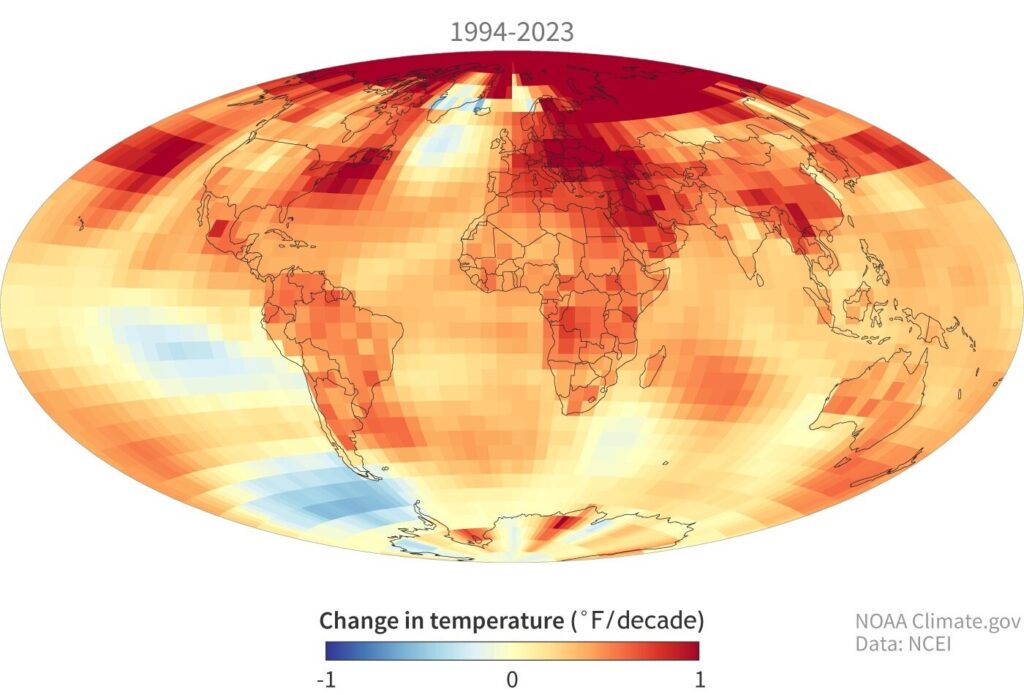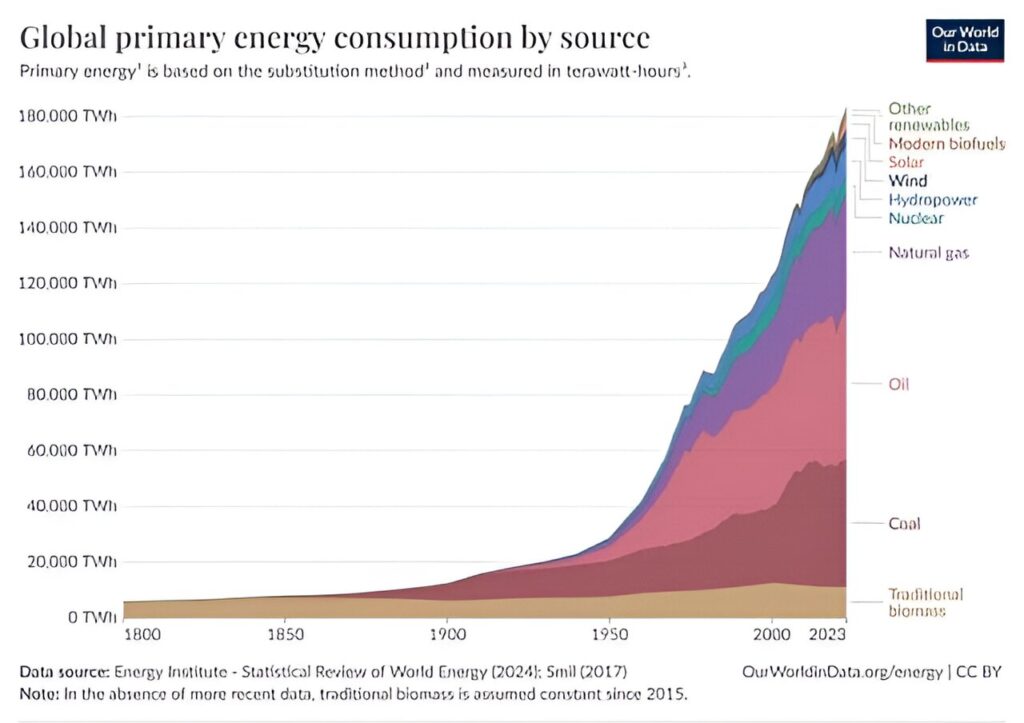Scientists from the Florida Institute of Technology have published the results of a study on so-called waste heat — residual heat generated during industrial processes. They concluded that it is a long-term problem for all advanced civilizations, which could lead to fatal overheating of the planet in just a thousand years.
Increase in the Earth’s temperature
The Earth’s average global temperature has been steadily increasing since the Industrial Revolution. According to the National Oceanic and Atmospheric Administration, the Earth has warmed 0.06°C per decade since 1850. And since 1982, the average annual temperature increase has accelerated significantly and now stands at 0.20°C.

All of this is a direct consequence of fossil fuels. It is not good for our planet and can lead to very serious, or even catastrophic, consequences.
However, according to a team of researchers at the Florida Institute of Technology, even if human civilization gives up using fossil fuels, it won’t solve the problem of the planet overheating. After all, in addition to greenhouse emissions, there is another factor that is often forgotten — waste heat — that contributes to temperature increases.
Waste heat problem
Back in 1969, Soviet climatologist Mikhail I. Budyko published a groundbreaking study in which he argued that with the development of civilization, the heat released during industrial processes and energy production would inevitably become a factor impacting the global temperature of our planet.

At the moment, waste heat makes only a minor contribution to global warming compared to greenhouse gas emissions. However, long-term projections show that this could change rather quickly. At the current rate of growth in energy production and consumption, waste heat could lead to a temperature increase of another 1°C by the end of the century, regardless of the situation with fossil fuel combustion.
According to scientists, the problem of waste heat is a universal one. Sooner or later any technologically advanced civilization, even one that doesn’t use fossil fuels at all, will face it.
1,000 years to overheat the planet
To determine how long it takes for civilization to overheat the planet, scientists turned to modeling. They adapted the habitability zone calculation for exoplanets by including an additional heat source from technological activities.

They also accounted for the exponential growth rate of civilizations and their energy consumption as predicted by the Kardashev scale. Using humanity as a sample, we see that between 1800 and 2023, global energy consumption increased from 5,653 terawatt-hours (TWh) to 183,230 TWh. This trend was not only exponential, but accelerated over time, similar to population growth during the same period (from 1 billion people in 1800 to 8 billion in 2023).
Scientists extrapolated this trend to assess its impact on habitability and determine the maximum lifespan of an advanced civilization after it has entered a period of exponential growth. As a result, they concluded that the maximum lifetime of technospheres is about 1,000 years, provided that their annual increase is about 1%. After that, the planet becomes uninhabitable.
The result plays an important role not only for the future of Earth, but also for projects that aim to search for alien civilizations. It may provide a partial explanation of the Fermi paradox.
According to the researchers, an advanced civilization can resort to several methods to save itself. One of them is shielding to reduce the radiation flux from the star. Another option is to move most of the technological infrastructure off-planet. In this case, their technosignatures can be found. And finally, there remains the option of consciously reducing energy consumption by slowing growth. However, whether a technologically advanced civilization can “stop” in time is still a big question.
According to Phys.org


